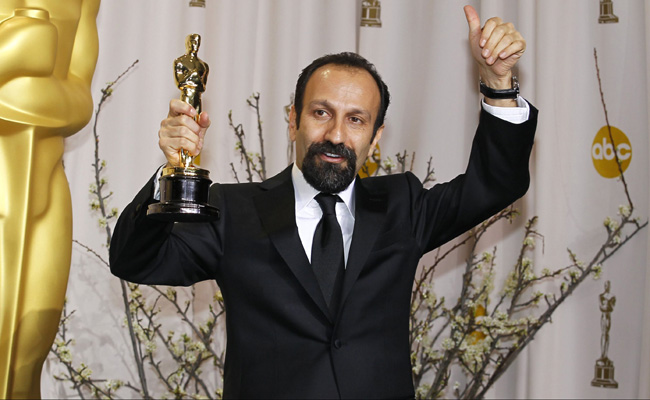
The Iranian film “A Separation” won the Oscar for Best Foreign Film. The Academy got that right, but, to my mind, they should have awarded it Best Picture. This film, written and directed by Ashgar Farhadi, makes “The Artist” look like a trifle.
Anyone who wants to launch a directing career should immediately see “A Separation” (while it is still in the theaters) because, in terms of production value, it is absolutely within the grasp of every aspiring filmmaker. It has the narrative drive of a freight train, but it is 90% close-ups and two-shots of people talking in rooms. There are no action sequences, no special effects, no crowds, no production design. If you had Farhadi’s talent, his cast and a capable crew that would work for nothing (and they exist) you could have made this film for $ 10,000. The rest would be history.
On a visual level Farhadi succeeds mostly because he fully understands, as I claimed in an earlier blog, that the most powerful image a filmmaker can put on the screen is the close up of an actor in the throes of intense feeling. The protagonist of “A Separation”, Peyman Moadi, as Nader, speaks volumes by raising his left eyebrow. At the end of the film a judge asks Nader’s ten year old daughter if she wants to live with her mother or her father after they get their divorce. She is framed a close-up against a grey wall. She starts to cry. To my eye, this shot is more powerful than anything in “Avatar”. All you need is a Canon 5D and an actress who can emote as honestly as the girl who plays Nader’s daughter, and you too can put the power of that image on screen.
But what makes “A Separation” a film for the ages is the script. Fahardi’s shining virtue as a film auteur is that, more than almost every filmmaker working today, known or unknown, mainstream or indie, he has the guts to make his hero hugely flawed and his villains amazingly sympathetic. Everybody who sees this film will experience it differently because it works overtime to be as open to interpretation as real life. But in the middle of film, I found myself very much on the side of the protagonist, Nader. His antagonist, Hodjat, struck me as the reincarnation of Mohamed Atta – the fundamentalist crazy who led the 9/11 hijackers. By the end of the film I had to admit, grudging, that Nader had brought much of his grief on himself, and that Hodjat, while undeniably a little crazy in some scary ways, was just a small man doing all the wrong things for some very understandable reasons.
In my book, this makes “A Separation” as brilliant as “Rashomon” and puts Fahardi in the same league as Sam Peckinpah who is known to have said, “I never had a villain I didn’t love.”